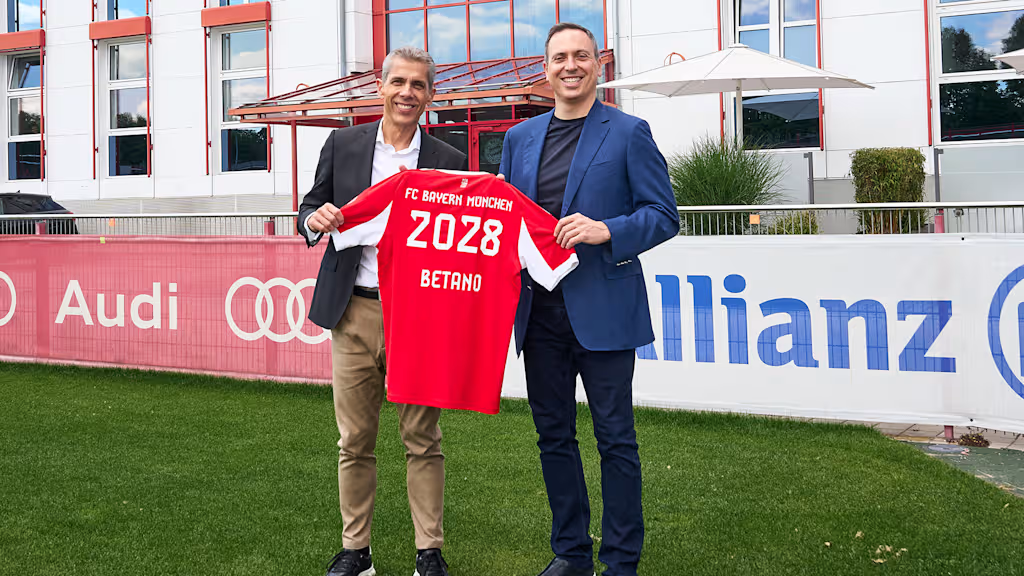In the booming world of online sweepstakes gaming, legal storm clouds are gathering. At the center of the latest brewing battle is Canadian tech firm Blazesoft Ltd., a fast-growing operator behind some of the internet’s most recognizable social casino brands: Fortune Coins, Zula Casino, and Sportzino. What once seemed like a clever workaround to America’s patchwork gambling laws has now landed Blazesoft in hot water with the U.S. legal system.
In early April, a class action lawsuit was filed in the Southern District of New York by plaintiff Autumn Boatner, a New York resident who claims to have been misled and financially harmed by Blazesoft’s business practices. Her complaint accuses the company of running illegal gambling operations under the guise of “free-to-play” social casinos. Specifically, Boatner’s legal team alleges that Blazesoft used deceptive advertising, buried fine print, and a confusing dual-currency model to lure players into spending real money on games of chance—without the oversight, protections, or licensing required of regulated gambling platforms.
Though the amount Boatner claims to have lost, just over $50 may seem small, the broader implications are anything but. If the court agrees with her claims, the ripple effect could be seismic, potentially redefining what constitutes online gambling in the U.S. and triggering a wave of similar lawsuits against other operators who use the sweepstakes model to work in legally gray territory.
This article unpacks the origins of the case, the detailed allegations leveled at Blazesoft, and what the outcome could mean not just for one company, but for the entire sweepstakes gaming industry using on American soil.
The Blazesoft Model: Just Games or Gambling in Disguise?
Blazesoft Ltd. has positioned itself as a rising star in the world of social casino gaming, offering users vibrant, interactive platforms that closely mirror the experience of a real casino. Its flagship websites Fortune Coins, Zula Casino, and Sportzino are packed with digital slot machines, poker tables, and roulette wheels that attract millions of players seeking entertainment. On the surface, these games are advertised as “just for fun,” with no direct cash wagers allowed. But dig a little deeper, and the mechanics tell a different story.
At the heart of Blazesoft’s model is a dual-currency system. Players buy Gold Coins, a virtual currency designed for play that carries no real-world value. However, those purchases come bundled with Sweeps Coins, a second type of in-game currency that can be redeemed for cash prizes. According to the company, this setup keeps it on the right side of U.S. gambling laws. After all, they argue, Sweeps Coins can also be acquired for free—via daily bonuses, social media promotions, or by mailing in a request, a loophole the company says exempts them from gambling classifications.
The lawsuit, however, challenges this entire narrative. It claims that in practice, most players receive Sweeps Coins by spending money, not through the free alternatives. It argues that the system intentionally blurs the lines between casual gaming and real-money gambling. What Blazesoft markets as a “free-to-play” social game, the lawsuit portrays as a pay-to-play casino wrapped in technicalities designed to evade regulation. The plaintiff contends that this amounts to illegal gambling, plain and simple.
The Implications of the Dual-Currency System
At the core of the lawsuit against Blazesoft is its dual-currency system, which the plaintiff claims disguise a pay-to-play gambling model as harmless sweepstakes. Blazesoft operates with two types of virtual currencies: Gold Coins, which are marketed as for entertainment-only play, and Sweeps Coins, which can be used in games where players stand to win real-world cash prizes. While Gold Coins are sold to players, the company markets Sweeps Coins as a bonus or free currency, claiming they can be earned through promotions, bonuses, or even a mail-in option.
However, the lawsuit argues that these free methods are nearly impossible to access and buried under a complicated, friction-filled process. In practice, players are often left with no choice but to buy Gold Coins to gain Sweeps Coins, which are the actual currency needed to play for prizes. The legal claim stresses that this system creates a deceptive illusion of a no-risk, sweepstakes-style gaming experience while it functions much like a traditional casino where players are essentially paying for the chance to win money.
The complaint goes further, alleging that players like Autumn Boatner were misled into believing they were participating in a legal, risk-free game, only to discover they were gambling without the proper safeguards, transparency, or regulation. The lawsuit calls this model a deliberate and deceptive attempt to bypass gambling laws, preying on players with misleading marketing and an intentionally confusing currency system.
Cashouts Delayed, Denied, or Obstructed
A major point of contention in the lawsuit against Blazesoft is the difficulty users face when trying to cash out their winnings. While the company publicly promotes that players can redeem Sweeps Coins for real cash prizes, the reality, according to the complaint, is far more complicated. The cashout process allegedly includes vague eligibility requirements, confusing terms buried deep in user agreements, and shifting verification procedures applied.
The lawsuit claims that many players, after spending money and accumulating winnings, are met with frustrating delays, unexplained denials, or endless requests for additional documentation. This leads to a common experience where depositing and playing is seamless, but withdrawing is mired in obstacles.
The complaint argues that this is not a design flaw but a deliberate strategy. By making cashouts as difficult and discouraging as possible, Blazesoft allegedly increases player spending while minimizing payouts. The result, according to the lawsuit, is a system that mimics gambling without offering the protection of a licensed and regulated casino.
Age Verification: A Legal Grey Zone or Breach?
A key legal sticking point in the New York case is the age of eligibility for platform access. Blazesoft only requires users to be 18 or older to create an account. However, New York gambling laws require participants in gambling activities to be at least 21.
The lawsuit contends that Blazesoft did not implement meaningful age verification measures. In doing so, it potentially allowed minors and underaged users to access gambling-style gameplay with real-world financial consequences. This alleged lapse could amount to a violation of state law and raises broader concerns about youth exposure to online gambling.
International Operator, Local Impacts
Blazesoft is a Canadian company headquartered in Concord, Ontario. While it operates websites registered in Delaware, it has no physical presence in the United States. This foreign domicile, the plaintiff argues, has helped shield the company from U.S. enforcement, even as it targets American consumers and processes payments from U.S.-based financial systems.
Boatner’s legal team is pushing for the court to hold Blazesoft accountable under New York law, arguing that the harm occurred within the state and that the company’s marketing, payment processing, and business operations directly targeted New York residents.
If the court accepts jurisdiction and the case proceeds, it could create a roadmap for other states to pursue similar legal actions against offshore sweepstakes casino operators.
Class Action Implications and Potential Damages
The legal action against Blazesoft is not just a personal grievance filed by one dissatisfied user. It is structured to become a full-fledged class action lawsuit, which, if certified by the court, would allow potentially thousands of affected users to join as plaintiffs. This escalation could transform the case from a relatively modest consumer complaint into a major legal and financial threat to the company.
The possible financial damages are substantial. If many users lose money through misleading or illegal practices, the total restitution could easily climb into the tens of millions of dollars. But the lawsuit aims to do more than recover lost funds. It also seeks injunctive relief that would stop Blazesoft from continuing its current business model, which the complaint characterizes as deceptive and unlawful.
In addition to monetary compensation and operational changes, the lawsuit could trigger a domino effect. A successful class action could lead to regulatory investigations, encourage legislative scrutiny of sweepstakes gaming models, and put pressure on other companies in space to reevaluate their practices. The case has the potential to reshape how social casinos work across the United States.
A Legal First? Not Quite. But a Sign of What’s to Come
Blazesoft is far from the first sweepstakes-style gaming operator to be taken to court in the United States. Over the last decade, many companies running similar platforms have landed in legal hot water and, although most have resulted without any serious action, others have either been subject to investigation, fined, or ordered to shut down. The core model that is at the heart of this lawsuit may not be able to remain untouched under this level of scrutiny.
What sets the Blazesoft lawsuit apart is the timing and the tone. The scrutiny towards social casino platforms has regulators finally starting to pay attention. This case arrives at a moment when lawmakers, tech critics, and even casual users are asking tough questions about how these platforms work and who they really benefit.
If the court sides with the plaintiff, it could mark a turning point. A ruling that these dual-currency systems amount to unlicensed gambling would threaten the legal foundation of the entire sweepstakes gaming model. That could mean regulation, licensing requirements, and a total upheaval of the industry as it currently exists.
Surge In Sweepstakes Casinos Exposes Lack of Regulations
Sweepstakes casinos have flourished in the United States largely due to a fragmented legal landscape. Without a clear federal framework, the legality of these operations is found by varying state laws and regulations. While states like Washington have outright banned sweepstakes casinos, others either tolerate them or do not provide specific definitions, allowing these platforms to thrive. This legal ambiguity has enabled operators to aggressively expand, particularly in states where traditional online gambling is heavily restricted or outright prohibited.
As state attorney generals face mounting pressure to regulate this sector, consumer protection agencies are taking a more active role. Lawsuits such as the one filed by Autumn Boatner could serve as catalysts for greater scrutiny, pushing lawmakers and regulators to close the gaps and show clearer guidelines for these online gaming platforms.
Blazesoft’s Silence: A Calculated Strategy?
Blazesoft has yet to issue any public statement on the lawsuit. Its websites stay active, its games continue to run under the same dual-currency system, and its terms of service remain unchanged.
This silence may be strategic. Commenting on an active legal case could expose the company to further liability or provide ammunition for plaintiff attorneys. But the absence of a response may also erode trust among users, particularly if the case gains traction in the media or among regulators.
For now, the company appears to be waiting—and hoping the storm passes.
The Future of Sweepstakes Casinos
Several key outcomes are possible in the coming months:
- Class certification: If the court agrees to certify the case as a class action, it will broaden the scope and increase the financial risk for Blazesoft.
- Settlement: Many companies opt to settle class actions early to avoid costly discovery and bad publicity. A settlement could result in partial refunds or changes to the platform’s structure.
- Trial: If Blazesoft chooses to fight, the case could become a landmark in defining the legal status of sweepstakes casinos under U.S. law.
- Regulatory domino effect: A successful lawsuit could trigger state and federal investigations into similar companies working under the same model.
No matter the outcome, the lawsuit is a clear sign that the legal honeymoon for sweepstakes casinos may be ending.
Can The Industry Survive Intense Scrutiny?
Sweepstakes casinos have thrived across the United States, exploiting the lack of a consistent, nationwide legal framework. In the absence of federal regulation, the legality of these operations often hinges on the interpretation of state laws, leading to a patchwork of approaches. For instance, while some states like Washington have explicitly banned sweepstakes casinos, others tolerate them due to vague definitions or insufficient enforcement mechanisms. This inconsistency has allowed operators to flourish, particularly in states where traditional online gambling is either prohibited or heavily regulated.
However, this once-comfortable gray area is increasingly under scrutiny. Consumer protection agencies are closely watching the rise of sweepstakes casinos, with a growing number of states being pressured to act. Lawsuits like the one filed by New York resident Autumn Boatner are pushing these platforms into the spotlight, raising critical legal questions about their legitimacy. As such cases gain traction, they may force courts and regulators to re-examine the legal standing of dual-currency systems used by these operators.
If the courts decide that these models are effectively gambling, the industry could face sweeping changes. Legal reclassifications, new regulations, and licensing requirements could fundamentally alter how sweepstakes casinos work—if not bring an end to the business model entirely.
Final Thoughts as The Legal Battle Continues
As Blazesoft’s legal battle unfolds, the broader implications for the sweepstakes casino industry become clearer. This lawsuit highlights the potential dangers of a system that blurs the line between entertainment and gambling, raising significant questions about consumer protection and regulatory oversight. If successful, this case could set a precedent, forcing a revision of the industry’s business model and potentially redesigning how these platforms work in the future. For both operators and regulators, this case marks a turning point in the ongoing struggle to define the boundaries of online gaming in the United States.

 Companies
Companies 





